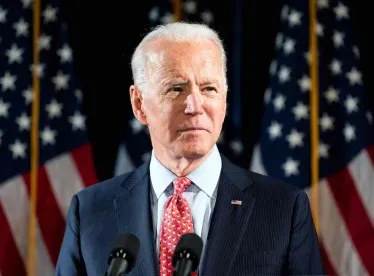As the Biden administration continues to shape its environmental priorities and agenda, greenhouse gas emissions remain a sharp focus. President Biden is hosting a White House climate summit this week, and is expected to announce plans to cut emissions levels by 2030, with reports indicating he is aiming for a 50% reduction in emissions from 2005 levels by that date. As part of this target, President Biden is expected to order significant reductions in vehicle emissions and other greenhouse gas emissions.
On Wednesday, more than 400 companies sent President Joe Biden an open letter urging reductions of at least 50% below 2005 levels by 2030. The companies represent trillions of dollars in revenue and millions of American jobs across a broad range of sectors. This includes auto industry leaders Ford and GM, who signed on to the letter and have voiced support for a 50% emissions reduction by 2030.
The “We Mean Business” coalition advocated for this goal “[t]o restore the standing of the U.S. as a global leader” in environmental issues. The coalition cited the “climate crisis” and called for a “credible” pathway to net-zero emissions by 2050. The companies therefore seek “the ambitious and attainable target of cutting GHG emissions by at least 50% below 2005 levels by 2030.” The coalition of business leaders cited investment in a green economy, energy efficiency, and clean transportation as drivers of economic recovery and job creation.
For their part, governors of 12 states—including some of the largest state economies—are speaking up to urge the administration to ban the sale of cars and trucks that emit greenhouse gases by 2035. This is a goal already adopted in California. The governors of California, New York, North Carolina, Massachusetts, Connecticut, Maine, New Jersey, New Mexico, Oregon, Washington, Rhode Island, and Hawaii sent their open letter ahead of Thursday’s climate summit, advocating for stronger climate action.
Meanwhile, other industry groups are speaking up to question whether the target is attainable under the current incentives and infrastructure. United Auto Workers and trade groups sent the administration a letter in March noting the realities of supply chain, technology and market adoption constraints in meeting the goal. The companies called for investment in bolstering the U.S. supply chain, infrastructure and incentives to move the U.S. towards its environmental targets.
Biden’s announcement will accelerate the pace of U.S. reductions in emissions. Biden’s 50% goal will nearly double the U.S.’s prior vows in the Paris climate agreement—a 26 to 28% reduction.




 />i
/>i
